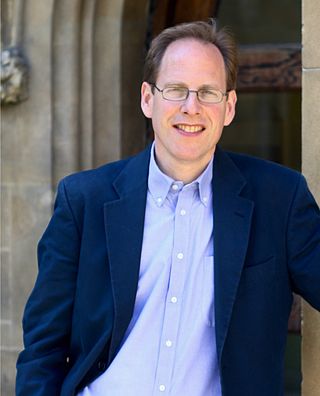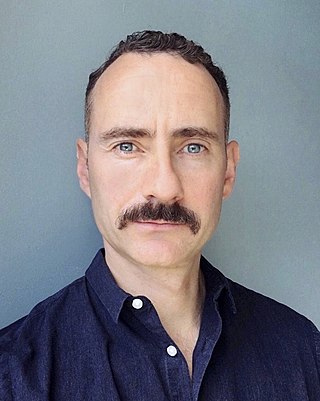
Sir Simon Philip Baron-Cohen is a British clinical psychologist and professor of developmental psychopathology at the University of Cambridge. He is the director of the university's Autism Research Centre and a Fellow of Trinity College.

The Institute of Psychiatry, Psychology & Neuroscience (IoPPN) is a leading centre for mental health and neuroscience research, education and training in Europe. It is dedicated to understanding, preventing and treating mental illness, neurological conditions, and other conditions that affect the brain. The IoPPN is a faculty of King's College London, England, and was previously known as the Institute of Psychiatry (IoP).

Uta Frith is a German-British developmental psychologist and Emeritus Professor in Cognitive Development at the Institute of Cognitive Neuroscience at University College London (UCL). She pioneered much of the current research into autism and dyslexia. Her book Autism: Explaining the Enigma introduced the cognitive neuroscience of autism. She is credited with creating the Sally–Anne test along with fellow scientists Alan Leslie and Simon Baron-Cohen. Among students she has mentored are Tony Attwood, Maggie Snowling, Simon Baron-Cohen and Francesca Happé.

Nikolas Rose is a British sociologist and social theorist. He is Distinguished Honorary Professor at the Research School of Social Sciences, in the College of Arts and Social Sciences at the Australian National University and Honorary Professor at the Institute of Advanced Studies at University College London. From January 2012 to until his retirement in April 2021 he was Professor of Sociology in the Department of Global Health and Social Medicine at King's College London, having joined King's to found this new Department. He was the Co-Founder and Co-Director of King's ESRC Centre for Society and Mental Health. Before moving to King's College London, he was the James Martin White Professor of Sociology at the London School of Economics, director and founder of LSE's BIOS Centre for the Study of Bioscience, Biomedicine, Biotechnology and Society from 2002 to 2011, and Head of the LSE Department of Sociology (2002–2006). He was previously Professor of Sociology at Goldsmiths, University of London, where he was Head of the Department of Sociology, Pro-Warden for Research and Head of the Goldsmiths Centre for Urban and Community Research and Director of a major evaluation of urban regeneration in South East London. He is a Fellow of the British Academy, the Royal Society of Arts and the Academy of Social Sciences, and a Fellow of the Royal Danish Academy of Science and Letters. He holds honorary doctorates from the University of Sussex, England, and Aarhus University, Denmark.

John Terrence Cacioppo was the Tiffany and Margaret Blake Distinguished Service Professor at the University of Chicago. He founded the University of Chicago Center for Cognitive and Social Neuroscience and was the director of the Arete Initiative of the Office of the Vice President for Research and National Laboratories at the University of Chicago. He co-founded the field of social neuroscience and was member of the department of psychology, department of psychiatry and behavioral neuroscience, and the college until his death in March 2018.
Cultural neuroscience is a field of research that focuses on the interrelation between a human's cultural environment and neurobiological systems. The field particularly incorporates ideas and perspectives from related domains like anthropology, psychology, and cognitive neuroscience to study sociocultural influences on human behaviors. Such impacts on behavior are often measured using various neuroimaging methods, through which cross-cultural variability in neural activity can be examined.
The Foundation for Psychocultural Research is a 501(c)(3) nonprofit organization based in Los Angeles that supports and advances interdisciplinary and integrative research and training on interactions of culture, neuroscience, psychiatry, and psychology, with an emphasis on cultural processes as central. The primary objective is to help articulate and support the creation of transformative paradigms that address issues of fundamental clinical and social concern.
Terrie Edith Moffitt is an American-British clinical psychologist who is best known for her pioneering research on the development of antisocial behavior and for her collaboration with colleague and partner Avshalom Caspi in research on gene-environment interactions in mental disorders.

Francesca Gabrielle Elizabeth Happé is Professor of Cognitive Neuroscience and Director of the MRC Social, Genetic and Developmental Psychiatry Centre at the Institute of Psychiatry, Psychology and Neuroscience, King's College London. Her research concerns autism spectrum conditions, specifically the understanding social cognitive processes in these conditions.

Professor Susan Lea is a chartered psychologist and academic, and was Vice-Chancellor at the University of Hull from 2017 to 2022. Previously she was Deputy Vice-Chancellor (Academic) at the University of Greenwich.

Thalia Catherine Eley is a Professor of Developmental Behavioural Genetics at the Institute of Psychiatry's MRC Social, Genetic and Developmental Psychiatry Centre, King's College London. Her work focuses on the interplay between genetic and environmental factors on the development and treatment of anxiety and depression.
Angelica Ronald is a Professor of Psychology and Genetics at the Centre for Brain and Cognitive Development within the Department of Psychological Sciences at Birkbeck, University of London, where she is the director of the Genes Environment Lifespan (GEL) laboratory. Angelica Ronald is also a visiting Senior Lecturer at the Institute of Psychiatry, Psychology and Neuroscience, King's College London. She has been awarded the Spearman Medal from the British Psychological Society and the Thompson award from the Behavior Genetics Association for her research.

Essi Maria Viding FBA FMedSci is Professor of Developmental Psychopathology at University College London in the Faculty of Brain Sciences, where she co-directs the Developmental Risk and Resilience Unit, and an associate of King's College London's Institute of Psychiatry, Psychology and Neuroscience. Viding's research focuses on development of disruptive behaviour disorders, as well as children and young people's mental health problems more broadly. She uses cognitive experimental measures, brain imaging and genetically informative study designs in her work.

Sarah-Jayne Blakemore is Professor of Psychology and Cognitive Neuroscience at the University of Cambridge and co-director of the Wellcome Trust PhD Programme Neuroscience at University College London.
Vaughan Bell is a British clinical psychologist, currently at the South London and Maudsley NHS Foundation Trust specialising in psychological interventions for psychotic outpatients and in training other professionals to deal with such patients. He is a clinical senior lecturer in the Division of Psychiatry at the Faculty of Brain Sciences at University College London and a visiting researcher at the Institute of Psychiatry, Psychology and Neuroscience, King's College London. His research focus includes neuropsychology, social cognition, psychosis and brain damage.

The UCL Division of Psychology and Language Sciences is a Division within the Faculty of Brain Sciences of University College London (UCL) and is located in London, United Kingdom. The Division offers teaching and training and undertakes research in psychology and communication and allied clinical and basic science. It is the largest university psychology department in England.

Daniel Freeman is a British psychologist and paranoia expert at the Institute of Psychiatry, Psychology and Neuroscience at King's College London and professor of clinical psychology and National Institute for Health Research research professor in the Department of Psychiatry at University of Oxford. His research indicates that paranoia affects a much wider population, not just those who have schizophrenia, as previously thought. One of his studies has also suggested that virtual reality can help treat paranoia. He has written several books on paranoia and anxiety disorders.
Edmund James Stephen Sonuga-Barke,, is a developmental psychologist and academic. He has held professorships at King's College London and the University of Southampton (1997–2017).

Eamon Joseph McCrory is a London-based scientist and clinical psychologist. He is Professor of Developmental Neuroscience and Psychopathology at University College London, where he Co-Directs the Developmental Risk and Resilience Unit. He is a Programme Director and member of the Executive team at the Anna Freud National Centre for Children and Families, Director of UKRI’s programme on Adolescent Mental Health and Wellbeing, and Co-Director of the UK Trauma Council.













